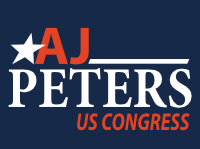Medicare and Medicaid
I would work to complete the following
Considerations for New Proposals
When crafting or evaluating proposals to tighten eligibility for Medicare, Medicaid, and Social Security, it is essential to consider the following:
Equity and Fairness: Ensure that changes do not disproportionately impact vulnerable populations, including low-income individuals and those with chronic health conditions.
Transition Periods: Implement gradual changes with sufficient transition periods to allow individuals to plan and adjust their retirement and healthcare strategies.
Safeguards for the Needy: Maintain protections and support for those who are most in need, ensuring that critical healthcare and financial assistance are not unduly restricted.
Economic Analysis: Conduct comprehensive economic analyses to understand the potential impacts of proposed changes on individuals and the economy as a whole.
Public Input: Engage with stakeholders, including beneficiaries, healthcare providers, and advocacy groups, to gather input and ensure that proposed changes address the needs and concerns of the public.
Example of Legislative Language
Here is an example of legislative language that could be included to address concerns about tightening eligibility:
Protections for Low-Income Beneficiaries: “Notwithstanding any other provision of this Act, benefits under Medicare, Medicaid, and Social Security shall not be reduced for individuals with an income below [specific threshold], ensuring continued support for the most vulnerable populations.”
Gradual Implementation: “Any changes to the eligibility age for Medicare, Medicaid, and Social Security shall be implemented gradually over a period of [specific number] years, with annual assessments to monitor the impact on beneficiaries.”
Review and Adjustment Mechanisms: “The Secretary of Health and Human Services shall conduct an annual review of the impact of eligibility changes on access to healthcare and financial security, with the authority to make adjustments as necessary to protect vulnerable populations.”
